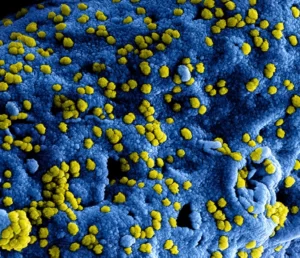Table of Contents
Introduction
IBS, or Irritable Bowel Syndrome, is a chronic condition of the gastrointestinal tract that is characterized by symptoms such as chronic abdominal pain, diarrhea or constipation, and irregular bowel movements. It is often associated with inflammation of the gastrointestinal tract and can be triggered by infections or stressful life events. Manuka honey, derived from the nectar of wild Manuka trees in New Zealand, has gained recognition for its numerous health benefits due to its unique properties, especially its high content of Methylglyoxal. In this article, we will explore the benefits of Manuka honey for IBS and the recommended usage for maximum effectiveness.
Benefits of Manuka Honey in Treating IBS
Manuka honey has been studied for its potential in treating IBS, although the exact mechanisms are not yet fully understood. However, its anti-inflammatory, immune-boosting, and antimicrobial properties make it a promising natural remedy for IBS.
1. Anti-Inflammatory Action
Inflammation of the gastrointestinal tract is a common symptom of IBS, and Manuka honey contains compounds that possess potent anti-inflammatory properties. A study conducted by the Chandigarh Postgraduate Institute of Medical Education and Research (India) observed the effects of Manuka honey on inflammation in an animal model of Inflammatory Bowel Syndrome (IBD), which shares similarities with IBS. The study found that oral administration of Manuka honey significantly reduced inflammation in the large intestine of rats. Additionally, conditions caused by oxidative damage in the diseased rats were also improved with Manuka honey treatment. While this study shows promising results, further research in the form of human clinical trials is needed to confirm the effectiveness of Manuka honey in treating IBS.
2. Immune-Boosting and Anti-Inflammatory Effects
IBS is associated with low-grade inflammation throughout the gastrointestinal tract, and Manuka honey’s potent anti-inflammatory properties make it effective in combating this condition. Research by Tomblin et al. suggests that Manuka honey exerts its anti-inflammatory effect by acting through the Toll-like receptor pathway, which plays a crucial role in cell proliferation, immune response, and inflammation. Furthermore, Manuka honey contains certain Arabinogalactan proteins and Apisimin that have been found to boost the immune system. A study conducted in January 2012 demonstrated the immune-boosting effects of Manuka honey due to these compounds.
3. Antimicrobial Activity
One of the unique properties of Manuka honey is its potent antimicrobial activity, comparable to that of antibiotics. The gastrointestinal tract hosts various bacteria that aid in digestion, but some of these bacteria can cause IBS symptoms when they overgrow and outnumber the healthy bacteria. Studies have shown that Manuka honey exerts antimicrobial effects on bacteria such as Campylobacter, E.coli, Clostridium difficile, and Enterobacter. Lin et al. found that most gastrointestinal germs and even antibiotic-resistant pathogens are susceptible to the microbicidal action of Manuka honey.
Caution: Methylglyoxal and IBS
Methylglyoxal is a compound found in high concentrations in Manuka honey and is considered the active ingredient responsible for its therapeutic properties. However, a study conducted on animals by researchers at the Department of Gastroenterology, First Affiliated Hospital of China Medical University, observed a link between methylglyoxal and irritable bowel syndrome. The study found that supplementation of methylglyoxal led to symptoms similar to IBS, including diarrhea, abdominal pain, and depressive behavior. It is important to note that this study focused on methylglyoxal alone and not specifically on Manuka honey. Other studies and anecdotal evidence suggest that Manuka honey benefits individuals with gastric disorders due to its antioxidant, anti-inflammatory, and antimicrobial properties. It is advisable to start with small doses of Manuka honey and monitor your health if you have concerns about methylglyoxal triggering IBS symptoms.
How to Take Manuka Honey for IBS
To maximize the benefits of Manuka honey for IBS, it is important to choose a product with a high level of methylglyoxal. The Unique Manuka Factor (UMF) rating is a widely recognized system that indicates the quality of store-bought Manuka honey. It is recommended to choose a rating of 10 or above for maximum benefits.
There is no specific dosage for Manuka honey in treating IBS, but a study conducted on individuals aged 42-64 concluded that honey, including Manuka honey, is safe for regular and frequent consumption with no observable adverse effects on normal health. For best results, it is suggested to take 1 teaspoon of Manuka honey twice a day, in between meals. You can also mix 1 teaspoon of Manuka honey with ginger and lemon juice to relieve gastric symptoms associated with IBS. While Manuka honey can be dissolved in cold or lukewarm water, the most effective way to take it is straight from the spoon.
It is important to note that individuals with honey allergies should do a patch test 48 hours before consuming Manuka honey to ensure safety. It is also crucial to avoid giving Manuka honey to children below the age of 12 months to prevent botulism poisoning. Diabetic individuals can consume Manuka honey, but they should closely monitor their blood glucose levels as Manuka honey may increase blood sugar levels.
Conclusion
Manuka honey has shown great potential in the treatment of IBS due to its anti-inflammatory, immune-boosting, and antimicrobial properties. Its ability to reduce inflammation, boost the immune system, and combat harmful bacteria make it a valuable natural remedy for IBS symptoms. However, it is essential to start with small doses and monitor your health, especially if you have concerns about methylglyoxal triggering IBS symptoms. Choosing a Manuka honey product with a high UMF rating can ensure maximum effectiveness. With its numerous health benefits, Manuka honey offers a natural and potentially effective solution for individuals with IBS.
Note: The information provided in this article is for informational purposes only and should not be considered as medical advice. Always consult a healthcare professional before starting any new treatment or making changes to your existing treatment plan.



